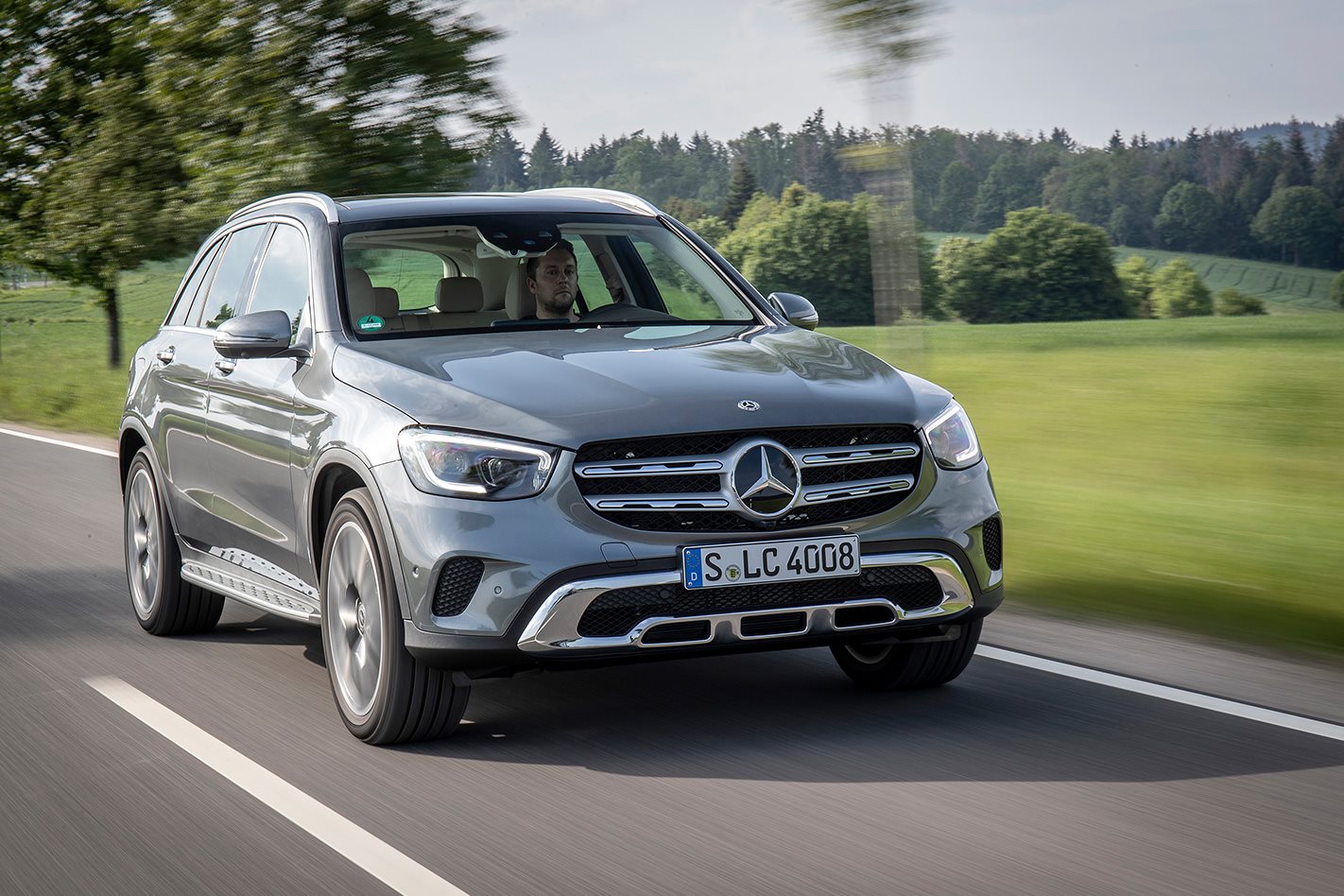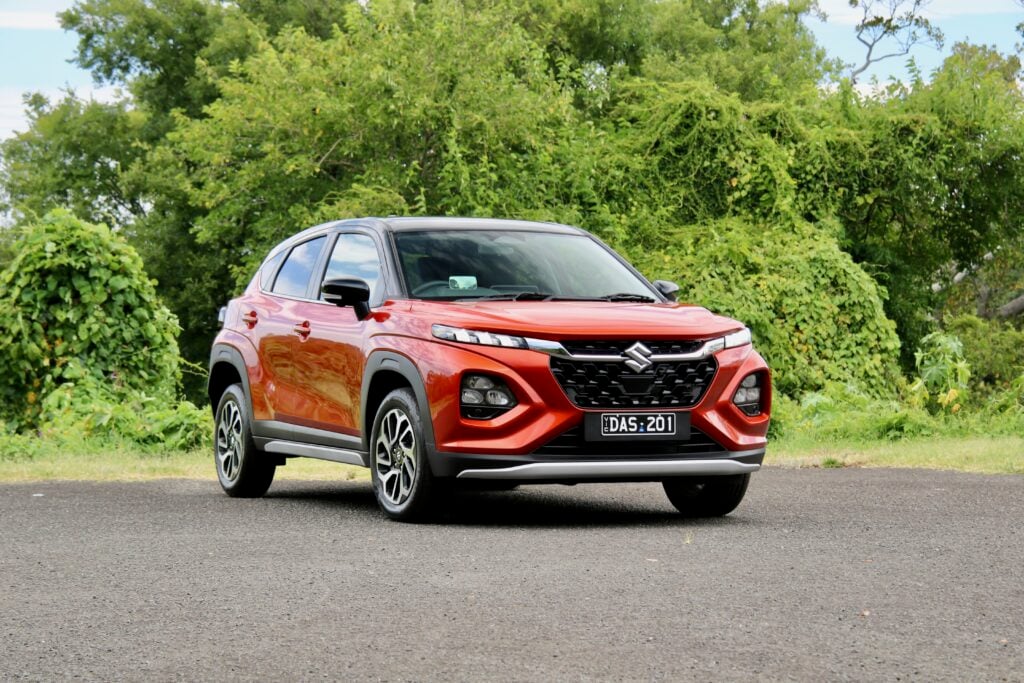Things we like
- Ride improvements
- MBUX multimedia
- Stronger performance and better economy
Not so much
- Not Mercedes' latest multimedia interface
- Ageing cabin
- Goneski diesels
The Wheels Verdict: Mercedes-Benz didn’t have to do too much to update its runaway bestseller, so while they are minor, the changes made address some past GLC shortfalls. Whether they’re enough for the ageing, midsized SUV to topple fierce rivals like our COTY-winning Volvo XC60 remains to be seen, but with the optional adaptive dampers on smooth German roads, the old version’s hard ride has been banished. That’s progress.
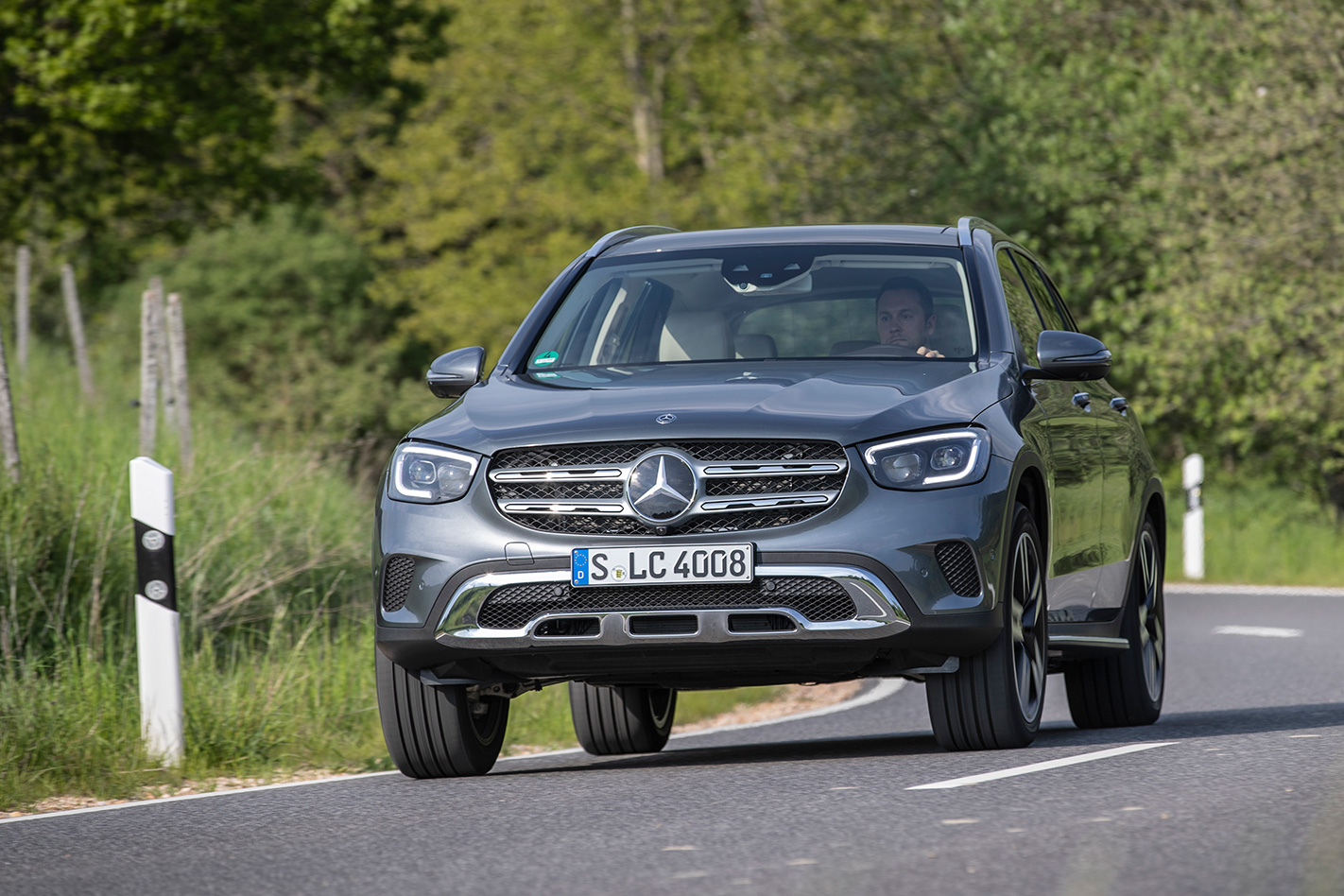
WHAT IS THE MERCEDES-BENZ GLC (AND GLC COUPE)?
Launched in late 2015, the spacious GLC hit the market running, relegating not only rivals like the previous BMW X3 and Audi Q5 to also-ran status in terms of popularity, but also usurping the C-Class range as the brand’s bestseller in Australia. But with the competition stepping up, issues like ride comfort had to be addressed, pronto; hence the Series II facelift. Ditto the GLC Coupe – the more expensive and less-practical (but dynamically superior) sibling.
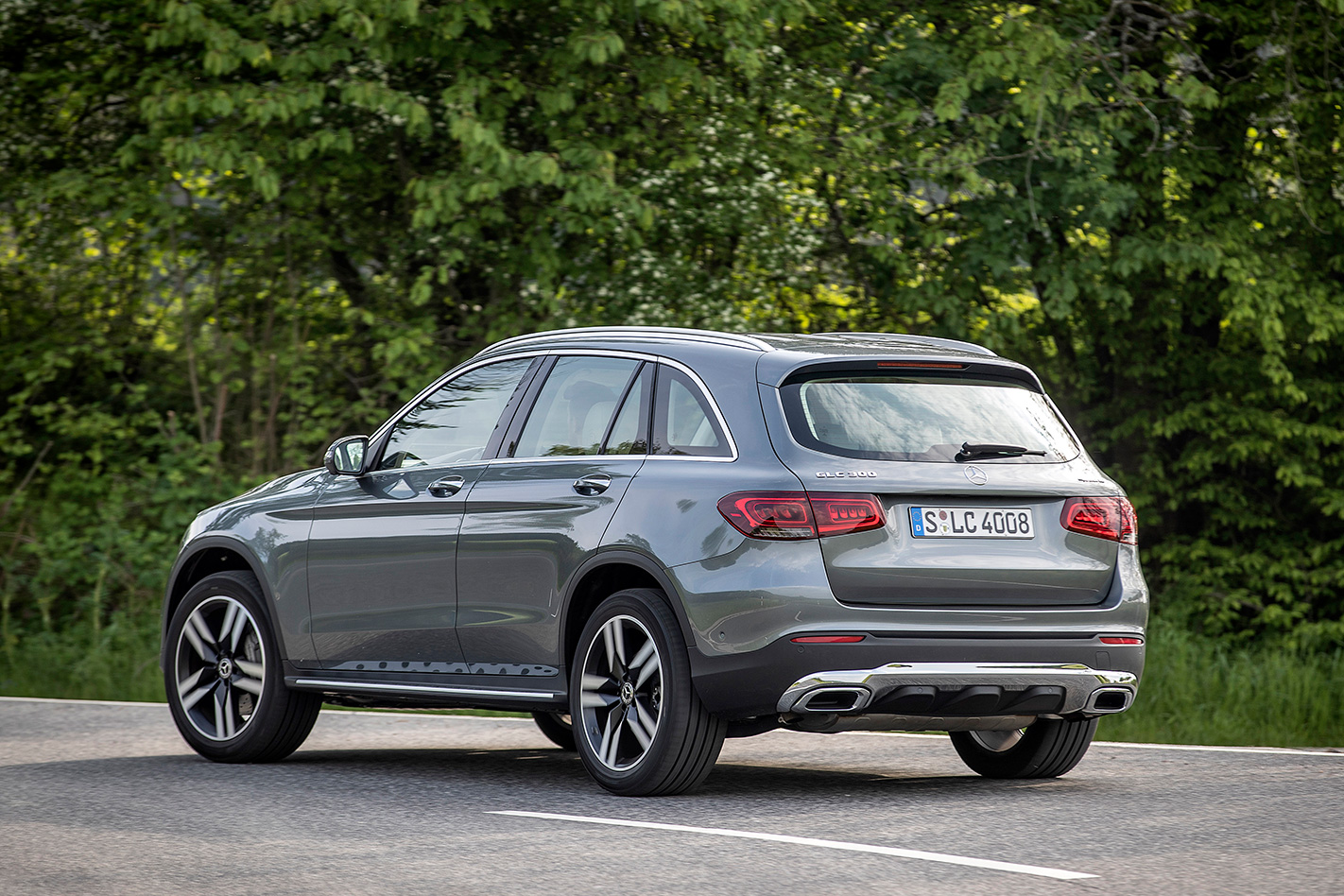
WHY WE’RE TESTING IT
While it is now Mercedes’ most popular model, the GLC (and its closely-related GLC Coupe sibling) has been more of a hit with buyers than critics, due to an abrupt ride, lacklustre interior and ho-hum engines (rollicking AMG 63 flagship excepted). When the competition is as fierce as the Volvo XC60 and Range Rover Velar, you have to put your best foot forward. Do the medium-sized Benz SUVs lift their game in Series II facelift guise?
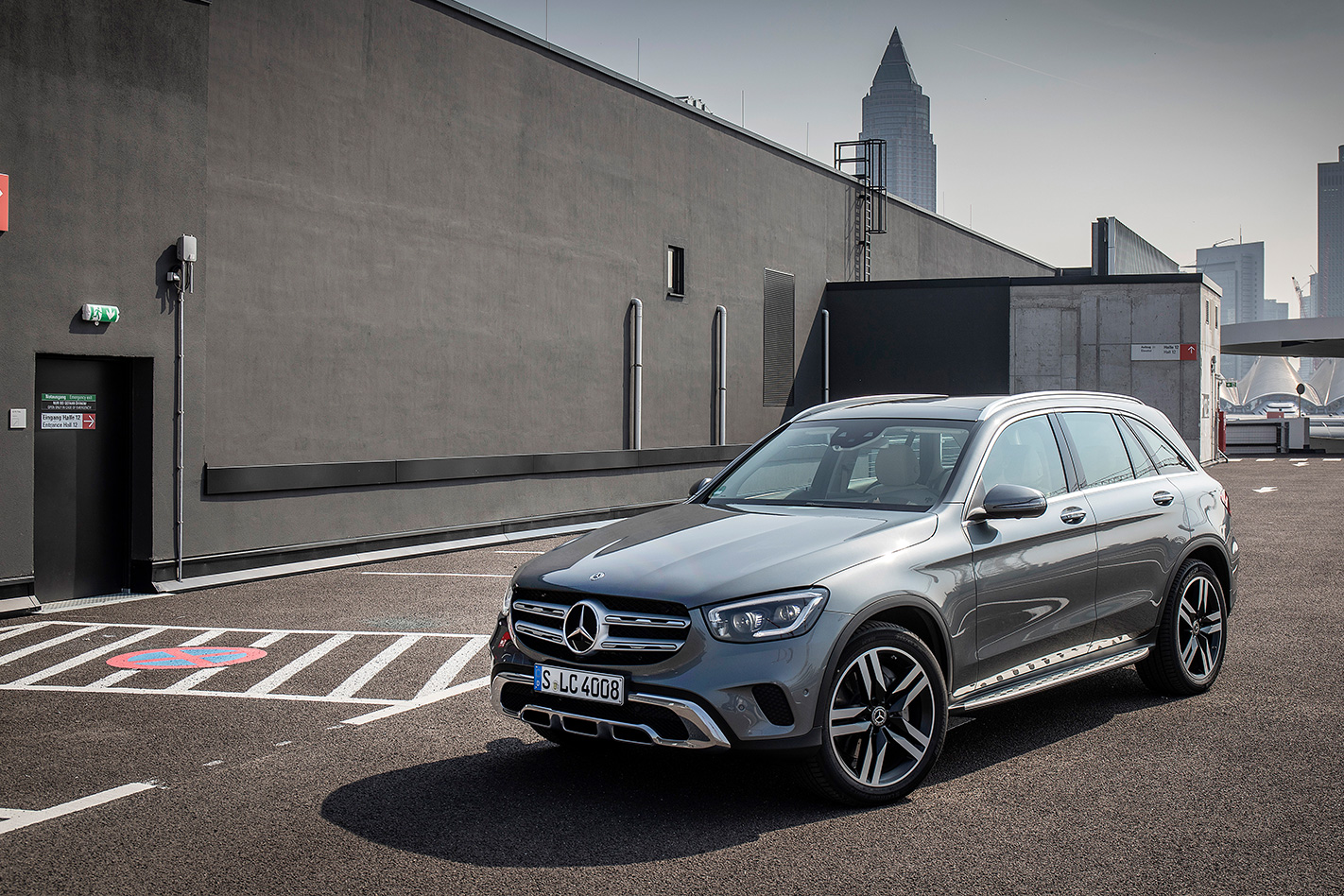
MERCEDES-BENZ GLC REVIEW
CAR MAKERS often do incredibly perplexing things that make no sense. Witness Pontiac’s bizarrely-styled Aztec, the W8-powered Volkswagen Passat or the Holden Viva.
We should add the Mercedes-Benz GLK to that list. Based on the previous-generation C-Class, it was Daimler’s answer to the BMW X3, all the way back in 2008 when the breed was still but a mere fledgling. And yet somebody in Germany decided there was no need to engineer a right-hand-drive, all-wheel drive version for the rest of the world. No doubt heads rolled over that, as rivals such as the Audi Q5 and Volvo XC60 lapped up buyers – unbothered by any pesky Benz competition – for seven long years.
Its successor – renamed the GLC – made no such misstep. Launched in late 2015, it stormed up the sales charts, even usurping the C-Class as the company’s Australian bestseller (and globally it second best). Today, Daimler truly owns this segment locally.
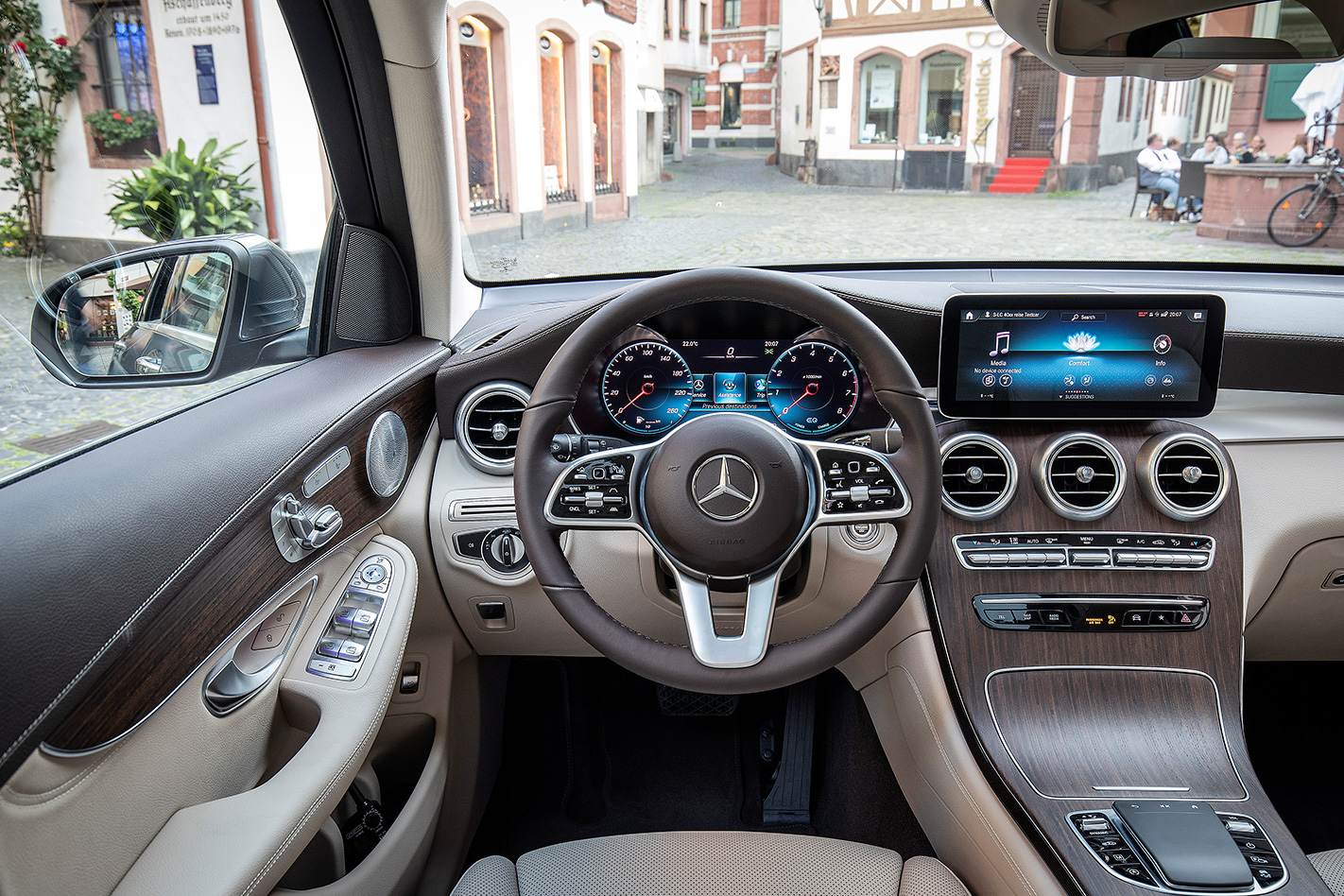
Now it’s GLC facelift time, and Mercedes has subtly massaged the styling, with a bolder front end (a big thumb’s up), cooler LED lighting and – oddly – lashings of extra chrome. It’s also junked the clunky old COMAND multimedia system for the latest, voice-activated MBUX system (which is a little too eager to answer when not called, in our experience, and occasionally glitchy) and noticeably stepped up the material finishes (at last). Don’t get too excited, however, because the dash remains a generation behind the latest A-Class in terms of appearance, and functionality.
The real big-ticket changes came under the skin, thanks to an all-new 2.0-litre four-cylinder turbo petrol engine family, offered in entry-level 145kW/320Nm GLC 200 rear-drive and what should be a blockbuster 190kW/370Nm GLC 300 4Matic guise, ushering in slightly stronger performance and – we’re assured – significantly improved fuel consumption. That’s chiefly because of a 10kW/150Nm 48-volt electric motor (called EQ Boost), providing a gentle nudge while recuperating otherwise spent braking energy. As a result, all diesels have been dropped – a risky move that may prove unpopular, especially among rural folk.
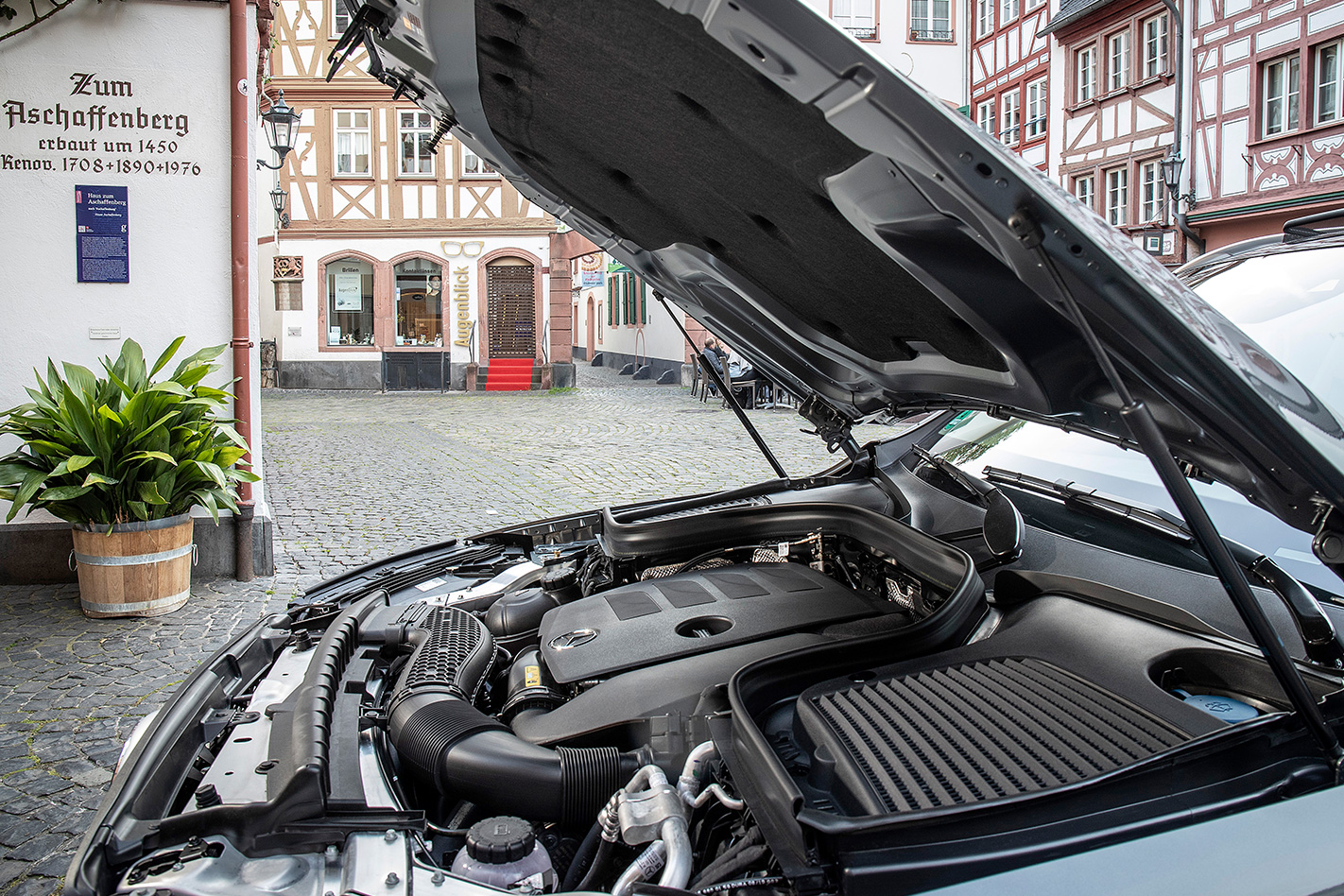
We can’t yet report on real-world efficiency, but we can say that the GLC 300 4Matic we drove around the Frankfurt countryside delivers adequate rather than adrenaline-pumping oomph (that’s the unfathomably fast and sonically endowed AMG 63’s job). It was ably aided by a seamless nine-speed auto that’s super keen to supply the perfect ratio for brisk throttle responses. While it’s not the most melodic powertrain around, it’s speedy enough.
Furthermore, the GLC’s finely tuned steering and adept handling are still a highlight. For a hefty SUV, the 300’s fondness for changing direction with maximum confidence and minimum fuss remains impressive.
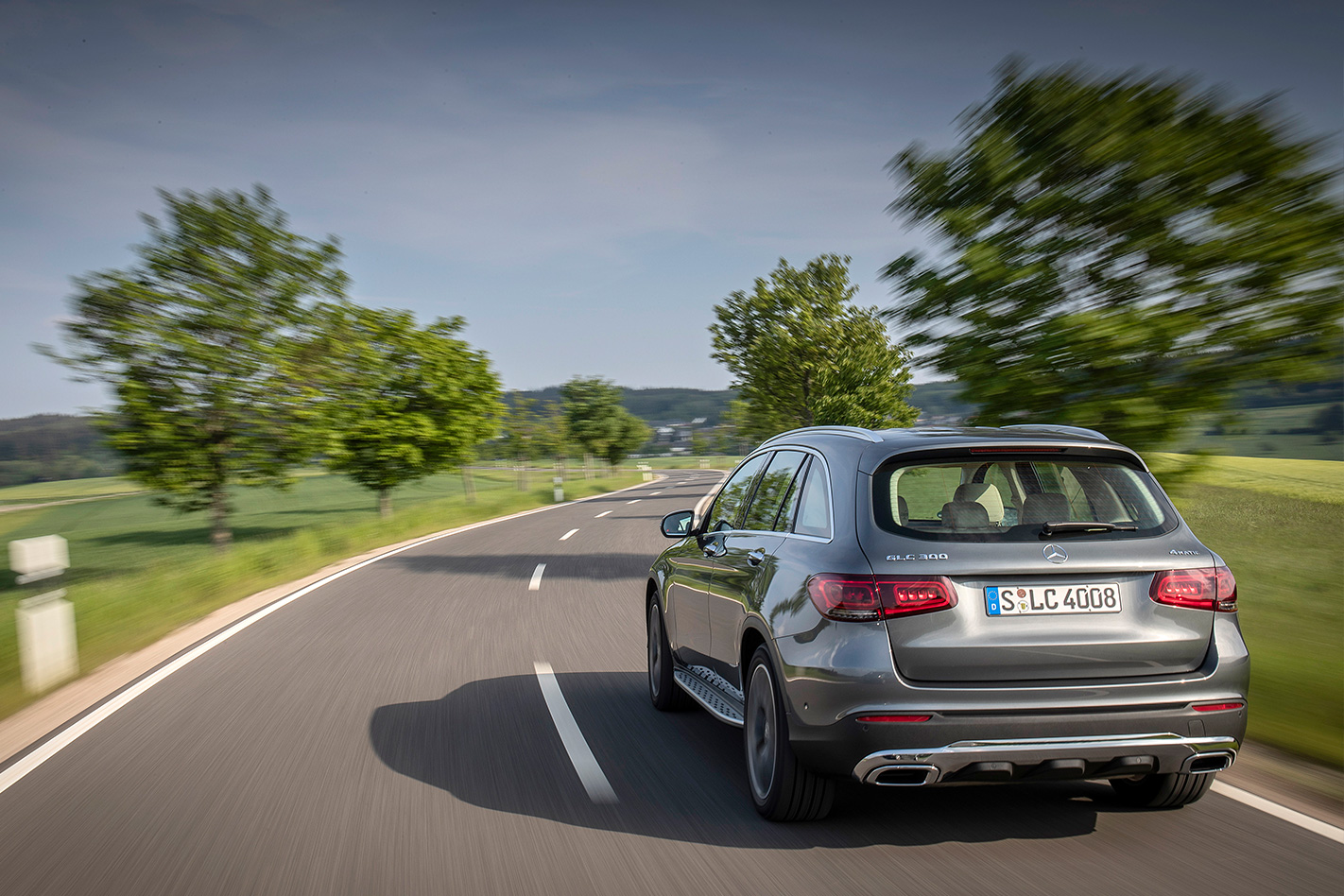
Frustratingly, however, arriving at a more definitive conclusion regarding ride quality – the preceding version’s bête noire on the standard suspension set-up – just wasn’t possible over Germany’s slick road surfaces, while all test vehicles were fitted with the optional adaptive dampers that helped provide a quiet, settled experience. Our advice is to tick the ‘Dynamic Body Control’ box anyway, if a pummelled posterior isn’t your goal. For extra pampering, there’s also air suspension now available.
Overall, then, the GLC facelift is all about keeping things fresh in the face of younger rivals. And, by and large, Mercedes has achieved exactly that, even if the cabin is beginning to seem dated. It won’t excite the senses, but the changes do make sense.
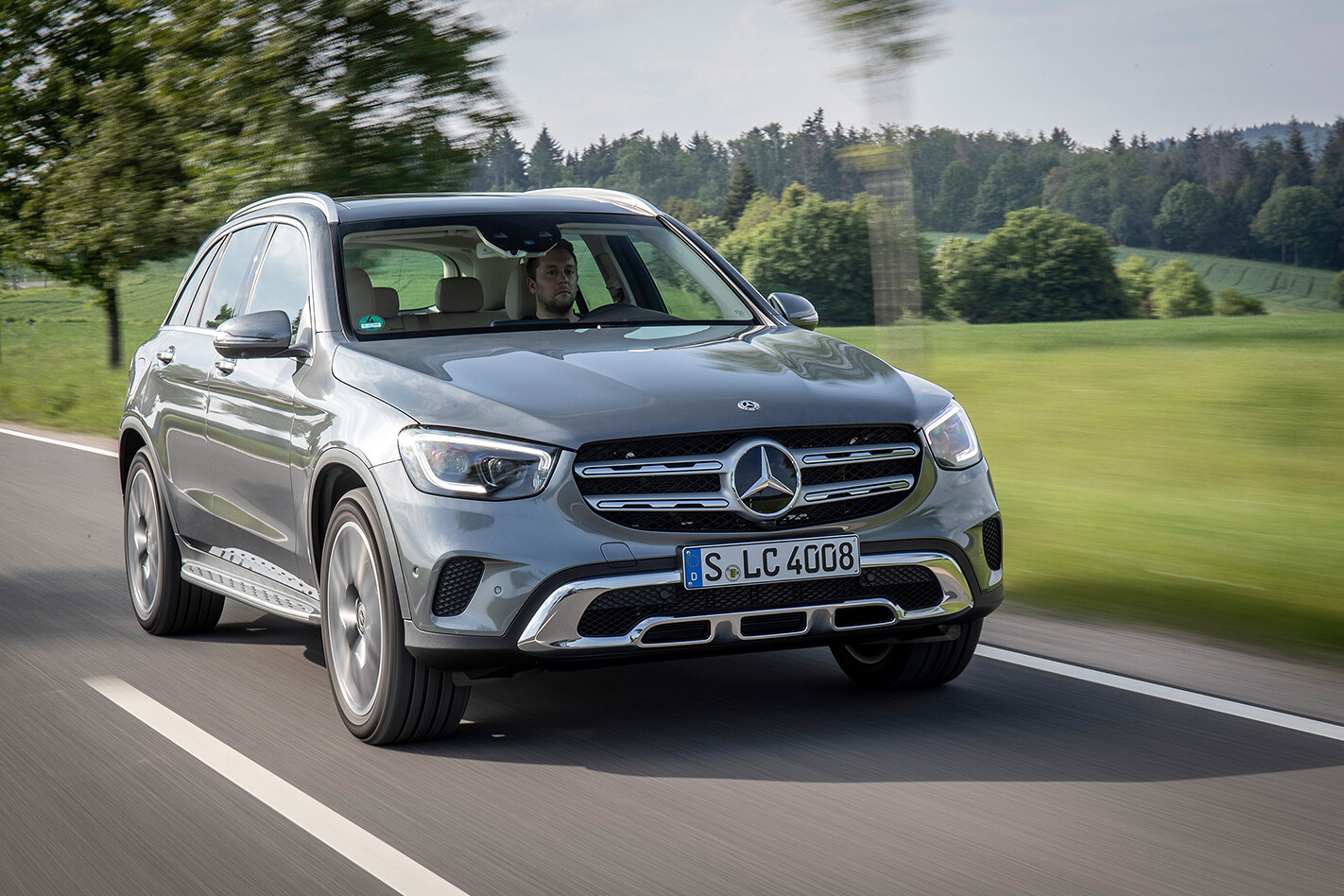
MERCEDES-BENZ GLC VS RIVALS
Alfa Romeo Stelvio, Audi Q5, BMW X3, Jaguar F-Pace, Land Rover Discovery Sport, Range Rover Evoque, Range Rover Velar, Porsche Macan, Volvo XC60
MERCEDES-BENZ GLC PRICE AND SPECS AUSTRALIA
- Model: GLC 300 4Matic
- Engine: 2.0-litre four-cylinder turbo
- Max power: 190kW @ 5800-6100rpm
- Max torque: 370Nm @ 1800-4000rpm
- Transmission: Nine-speed automatic
- Weight: 1805kg
- 0-100km/h: 6.2sec
- Economy: 7.4L/100km
- Price: $75,000 (approximately)
- On sale: August 2019
Things we like
- Ride improvements
- MBUX multimedia
- Stronger performance and better economy
Not so much
- Not Mercedes' latest multimedia interface
- Ageing cabin
- Goneski diesels

